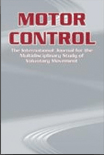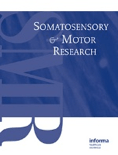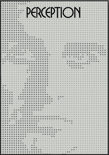
PERCEPTUAL AND MOTOR SKILLS
Scope & Guideline
Connecting Perception to Performance in Human Behavior
Introduction
Aims and Scopes
- Perceptual-Motor Integration:
Research on how perceptual processes influence motor skills and vice versa, examining the neural and cognitive mechanisms that underpin these interactions. - Developmental Motor Skills:
Studies focusing on the development of motor skills across different age groups, including children and adolescents, with implications for education and physical activity. - Sports Performance and Training:
Investigations into factors affecting sports performance, including psychological, physiological, and biomechanical aspects, aimed at improving training methodologies. - Cognitive Functioning and Motor Skills:
Exploration of how cognitive processes such as attention, memory, and decision-making impact motor skills, particularly in athletes and children. - Health and Rehabilitation:
Research aimed at understanding and improving physical health outcomes through motor skill development, particularly in clinical populations, such as individuals with disabilities or those recovering from injury. - Psychometric Evaluations:
Development and validation of assessment tools measuring motor skills, cognitive functions, and associated psychological constructs.
Trending and Emerging
- Technology in Motor Skill Development:
An increasing number of studies are exploring the role of technology, including virtual reality and augmented reality, in enhancing motor learning and performance. - Interdisciplinary Approaches:
Research that integrates psychology, neuroscience, and motor skills is on the rise, highlighting the importance of a holistic view of motor development. - Mental Health and Physical Activity:
There is a growing emphasis on the relationship between mental health and physical activity, particularly in how exercise can mitigate symptoms of anxiety and depression. - Focus on Non-Traditional Populations:
More studies are being conducted on diverse populations, including individuals with disabilities and older adults, emphasizing inclusive practices in physical activity and rehabilitation. - Cognitive Load and Motor Performance:
Emerging research is investigating how cognitive load affects motor performance, with implications for training protocols in sports and rehabilitation settings.
Declining or Waning
- Traditional Sports Techniques:
Research focusing on conventional techniques in sports has decreased, possibly due to a shift towards more innovative training methods and technologies. - Static Balance Assessments:
Studies that primarily assess static balance without considering dynamic contexts have become less frequent, reflecting a growing understanding of the importance of dynamic balance in real-world applications. - Single-Dimensional Cognitive Assessments:
Research that solely examines cognitive functions in isolation from motor skills has seen a decline as interdisciplinary approaches gain favor. - Generalized Motor Skill Assessments:
The focus on broad assessments of motor skills without contextual applications has waned, with more emphasis placed on specific skill acquisition and its implications for performance.
Similar Journals

HUMAN MOVEMENT SCIENCE
Innovating Insights into Motion and Health.HUMAN MOVEMENT SCIENCE is a leading academic journal published by Elsevier, focused on the interdisciplinary study of human motion across several fields, including biophysics, psychology, and orthopedic sciences. With an ISSN of 0167-9457 and E-ISSN 1872-7646, this journal serves as a pivotal platform for researchers and practitioners interested in understanding the intricacies of human movement, employing rigorous methodologies to enhance health and athletic performance. The journal boasts a commendable impact factor, categorized as Q2 in esteemed categories such as Biophysics, Orthopedics and Sports Medicine, and Medicine, reflecting its significance in the academic landscape. HUMAN MOVEMENT SCIENCE publishes high-quality original research, critical reviews, and innovative methodologies, welcoming contributions that address both theoretical and practical aspects of human movement from 1982 to 2024. With its commitment to advancing knowledge in movement science, this journal appeals to a wide audience of researchers, professionals, and students eager to stay at the forefront of this dynamic field. Access options may vary, making it essential for readers to consult the journal's website for the most current publication practices.

Journal of Cognitive Education and Psychology
Bridging Theory and Practice in Learning and DevelopmentWelcome to the Journal of Cognitive Education and Psychology, an esteemed publication under the SPRINGER PUBLISHING CO, based in the United States. With an ISSN of 1945-8959 and an E-ISSN of 1810-7621, this journal serves as a vital platform for the dissemination of research and scholarly discourse in the fields of cognitive education, developmental psychology, and experimental psychology. Despite its Q4 rankings in the 2023 category quartiles across educational and psychological disciplines, the journal has rapidly built a reputation for contributing significant insights to the development and understanding of cognitive processes in educational settings. While operating under a subscription model, the journal aims to provide quality peer-reviewed articles that foster knowledge exchange among researchers, practitioners, and students. As it converges from the years 2017 to 2022, the journal seeks to bridge the gaps between educational psychology theories and practical application, ensuring that the findings and discussions within its pages can directly inform effective educational practices.

PSYCHOLOGICAL RESEARCH-PSYCHOLOGISCHE FORSCHUNG
Elevating psychological research to new heights of excellence.Psychological Research – Psychologische Forschung is a renowned interdisciplinary journal published by Springer Heidelberg, operating from Germany. As a key publication in the field of psychology, particularly spanning areas such as experimental and cognitive psychology, developmental and educational psychology, and arts and humanities, this journal has made significant contributions to the advancement of psychological science since its inception in 1974. With an impressive impact reflected through its Q1 and Q2 categorizations across various fields, it occupies a prominent position in Scopus rankings, notably ranked #35 in Experimental and Cognitive Psychology. Researchers, professionals, and students alike benefit from its rich repository of original empirical studies, reviews, and methodological advancements. Whether you're seeking to contribute to your field or stay abreast of the latest developments, Psychological Research provides a crucial platform for disseminating innovative psychological knowledge. With a convergence of research years leading to 2024, the journal continues to evolve, maintaining its relevance and excellence within the academic community.

MOTOR CONTROL
Exploring the Mechanics of Motor PerformanceMOTOR CONTROL, published by HUMAN KINETICS PUBL INC, is a prominent journal focusing on the interdisciplinary study of motor performance and control mechanisms. Since its inception in 1997, the journal has served as a critical platform for researchers, professionals, and students engaged in fields related to neurology, physical therapy, sports therapy, and medical physiology. With an ISSN of 1087-1640 and a commitment to fostering academic discourse, MOTOR CONTROL is indexed across various categories, achieving a commendable Q3 ranking in several areas like Neurology (clinical) and Physical Therapy in 2023, and maintaining a publication horizon extending to 2024. Although it does not offer Open Access, the journal remains a valuable resource for advancing knowledge in motor function evaluation and intervention strategies. The insights published within its pages contribute significantly to enhancing clinical practices and understanding the dynamics of motor activities, making it an essential read for those dedicated to improving human movement science.

Wiley Interdisciplinary Reviews-Cognitive Science
Exploring the frontiers of mind and behavior.Wiley Interdisciplinary Reviews-Cognitive Science (ISSN: 1939-5078, E-ISSN: 1939-5086), published by WILEY, stands as a premier academic journal dedicated to advancing the understanding of cognitive science through an interdisciplinary approach. Since its inception in 2010, the journal has rapidly established itself as a leading source of knowledge, achieving a Q1 ranking in the 2023 category of Medicine, Neuroscience, and Psychology, underscoring its significant impact within these fields. With a Scopus ranking of #27 in General Psychology and #30 in General Neuroscience, it offers researchers, professionals, and students access to cutting-edge research that bridges various disciplines, fostering collaboration and innovation. Though not openly accessible, this journal is critical for those aiming to stay at the forefront of cognitive science research, providing comprehensive reviews that synthesize emerging findings and highlight future directions for study.

SOMATOSENSORY AND MOTOR RESEARCH
Innovating Insights into Somatosensory and Motor SystemsSOMATOSENSORY AND MOTOR RESEARCH is a distinguished journal dedicated to exploring the intricate relationship between sensory and motor systems. Published by Taylor & Francis Ltd, this journal has been a significant resource for researchers in the fields of neuroscience and physiology since its inception in 1983, until it converged its coverage in 2017. Although it is no longer indexed in Scopus, SOMATOSENSORY AND MOTOR RESEARCH continues to contribute valuable insights into sensory systems and physiology, evidenced by its rankings in the lower percentiles of its respective categories. With a strong focus on empirical research, the journal aims to facilitate the dissemination of innovative studies that impact both academic understanding and clinical practices. Potential authors and researchers can access the journal's collection of past articles to further their knowledge and foster collaboration in this niche yet vital area of study. Its legacy endures as an informative platform for academics looking to bridge the gap between theoretical and applied sciences in the realm of somatosensory and motor functions.

ACM Transactions on Applied Perception
Exploring the Nexus of Perception and ComputationACM Transactions on Applied Perception is a leading journal published by the Association for Computing Machinery, focusing on the intersection of perception science and computational methods. With an ISSN of 1544-3558 and an E-ISSN of 1544-3965, this esteemed publication has been a vital resource for innovators and researchers since its establishment in 2004. It operates within the ambit of Computer Science and the realms of Experimental and Cognitive Psychology, boasting a commendable impact factor and category rankings, including Q2 in Computer Science (miscellaneous) and Q3 in both Experimental and Cognitive Psychology and Theoretical Computer Science. The journal's scope encompasses a plethora of studies aimed at understanding human perception through computational lenses, making it an essential platform for scholarly exchange. Although it does not currently offer an Open Access option, its extensive reach and rigorous peer-review process ensure high visibility and impact in the academic community. By fostering collaboration across disciplines, ACM Transactions on Applied Perception encourages advancements that bridge perceptual research with practical applications, making it invaluable for researchers, professionals, and students engaged in this dynamic field.

PERCEPTION
Connecting Psychology, AI, and Sensory SystemsPERCEPTION is a leading journal published by SAGE PUBLICATIONS LTD, focusing on the multidisciplinary aspects of perception across various fields, including Artificial Intelligence, Experimental and Cognitive Psychology, Ophthalmology, and Sensory Systems. With a commitment to advancing knowledge and fostering innovative research, the journal has been in circulation since 1972 and is recognized for its rigorous peer-review process and significant contributions to the academic community. Its current impact factor and Scopus rankings position it within the esteemed Q2 and Q3 categories, making it a valuable resource for researchers and professionals aiming to explore the complexities of human perception and its computational models. Although PERCEPTION does not offer open access, it provides essential insights and findings that are particularly relevant for students and academics in psychology, neuroscience, and artificial intelligence. Addressing cutting-edge topics, this journal serves as a vital forum for the exchange of research ideas and methodologies in the evolving landscape of perception studies, making it a crucial asset for anyone dedicated to understanding this intricate field.

Journal of Neurophysiology
Exploring the frontiers of neurophysiological research.The Journal of Neurophysiology, published by the American Physiological Society, stands as a cornerstone in the exploration of neural function and its physiological implications since its inception in 1945. With an ISSN of 0022-3077 and an E-ISSN of 1522-1598, this esteemed journal not only holds a Q2 ranking in both the Neuroscience (miscellaneous) and Physiology categories for 2023, but also features prominently in the Scopus rankings, reflecting its significant contribution to the fields of biochemistry, genetics, molecular biology, and general neuroscience. Although the journal does not currently offer open access options, it provides peer-reviewed research that generates critical insights into the functioning of the nervous system, appealing primarily to researchers, professionals, and students eager to advance their understanding of neurophysiological processes. With its commitment to high-quality, impactful research, the Journal of Neurophysiology is a vital resource for anyone looking to stay at the forefront of neural science research.

RESEARCH QUARTERLY FOR EXERCISE AND SPORT
Pioneering Evidence-Based Practices for Health and PerformanceRESEARCH QUARTERLY FOR EXERCISE AND SPORT, published by Routledge Journals, Taylor & Francis Ltd, stands as a premier publication dedicated to advancing knowledge in the fields of physical therapy, sports medicine, and exercise science. With an impressive impact factor and a well-established reputation, this journal has consistently ranked among the top in multiple disciplines, including Q1 in Physical Therapy, Sports Therapy, and Rehabilitation. Covering a broad array of topics from clinical practices to innovative research, the journal fosters a platform for interdisciplinary collaboration and evidence-based practice. Its open access policy enables wider dissemination of groundbreaking research, appealing to a diverse audience of researchers, clinicians, and students. As it continues to contribute to the evolution of sports science and medicine, the RESEARCH QUARTERLY FOR EXERCISE AND SPORT remains an essential resource for those dedicated to enhancing health and performance through rigorous scholarly inquiry.